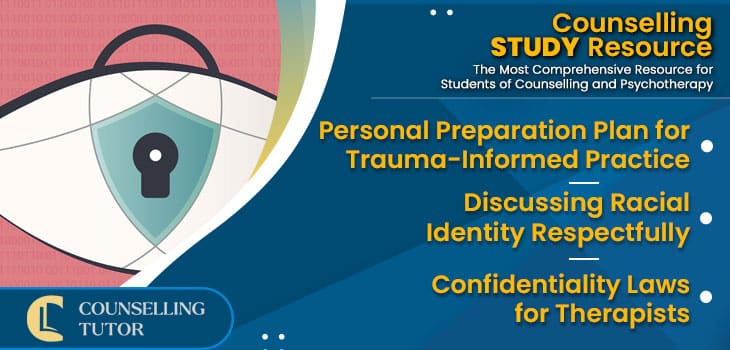See Counselling Skills Used in Real Sessions by Qualified Therapist
Real Sessions – Real Presentations – Real Skills
Gain the competence and confidence to use counselling techniques effectively!

In Episode 311 of the Counselling Tutor Podcast, your hosts Rory Lees-Oakes and Ken Kelly take us through this week’s three topics:
Confidentiality Laws for Therapists
When it comes to working with trauma, it’s important to look out for yourself as well as the client. In this section, Rory and Ken describe some of the things to consider when it comes to having a personal preparation plan, and why it’s a good idea to have one in place:

Real Sessions – Real Presentations – Real Skills
Gain the competence and confidence to use counselling techniques effectively!
In this week’s ‘Practice Matters’, Rory speaks with Sarah Henry about discussing racial identity respectfully.
The main points of this section include:

On-demand access to a rich lecture library covering theory, skills, and professional development for counselling students—Mapped to the UK awarding body criteria
“The Student Library has been BRILLIANT, I can’t recommend it enough!
It has been a lifeline in helping me prepare for practice and my first clients. If you’re considering it, go-for-it, it’s absolutely worth it!”
Kelly – Graduated and now in practice.
It can be daunting to learn about the laws around counselling, but it’s just as important as learning the skills and theory behind our practice. In this section, Rory and Ken discuss confidentiality laws for therapists:
Confidentiality Laws for Therapists

Get on-demand Certified CPD that is implementable in your practice
